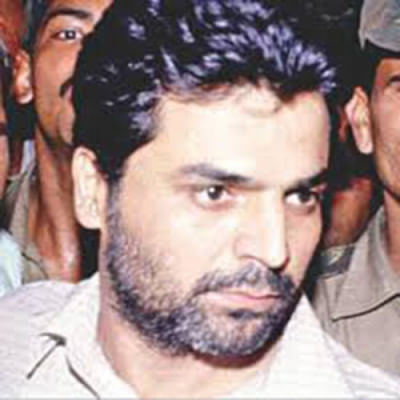Mumbai attack accused Yakub hanged

India today executed Yakub Memon who was sentenced to death for being a “driving spirit” behind string of blasts in Mumbai that killed 257 people in 1993.
He was hanged inside a prison in western Indian state of Maharashtra early today after the Supreme Court rejected his last-minute petition for reprieve during an unprecedented middle-of-the-night hearing
Earlier on Wednesday night, President Pranab Mukherjee rejected Memon's last-ditch mercy petition sent to him on Wednesday.
Soon afterwards, activists and Memon's lawyers told the Supreme Court in a late-night appeal that after a mercy plea is rejected, the death row prisoner cannot be hanged for 14 days, according to rules.
However, the Supreme Court dismissed his last-minute attempt to escape the gallows by rejecting his plea for a stay on the death warrant.
"Stay of death warrant would be a travesty of justice. The plea is dismissed," said Justice Dipak Misra, heading a three-judge bench, in an order in a court room which was opened for an unprecedented 90-minute hearing that started at 3:20am today and ended a little before dawn.
The court's decision brings the curtain down on the last- ditch attempts by Memon's lawyers to stop the execution scheduled at 7:00am at Nagpur Central Jail.
After the apex court ruling early this morning, Memon was hanged in the central prison of Nagpur.
Yakub Memon, the lone 1993 Mumbai serial blasts convict given capital punishment, became the third terror convict to have been sent to the gallows in the last four years.
Earlier, Parliament attack convict Mohamammed Afzal Guru was hanged at Tihar jail here on February 9, 2013. Afzal was convicted for conspiracy in the December 2001 attack on Indian Parliament and was sentenced to death by the Supreme Court in 2004.
On December 13, 2001, five heavily-armed terrorists had stormed the Parliament complex and opened indiscriminate fire, killing nine persons.
Prior to Afzal, Aamir Ajmal Kasab, the sole surviving Pakistani gunman involved in the Mumbai terror attacks which left 166 people dead in November, 2008, was hanged to death at Yerwada central prison in Pune, also in Maharashtra state, on November 21, 2012, in an operation shrouded in secrecy.
Ten Pakistani Lashkar-e-Taiba terrorists had swooped on India’s financial capital Mumbai on November 26, 2008 and unleashed mayhem, targeting many of the city's landmarks, and killing166 people, including some foreigners.
Nine of the ten terror perpetrators were killed during the 60-hour siege and Kasab was captured alive.
The Indian Supreme Court had on Wednesday refused to stop Memon's hanging, rejecting his claim that the top court had not followed correct processes in upholding his death sentence earlier this week.

 For all latest news, follow The Daily Star's Google News channel.
For all latest news, follow The Daily Star's Google News channel. 



Comments